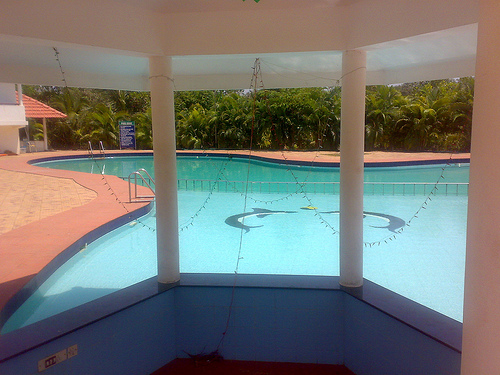For those who have a swimming pool, you might be using it for all year long and therefore it is important for you to do maintenance and take proper care of the pool in order for it to last longer as well as safe for your family’s usage. You would be able to avoid major issues related to swimming pool if you managed to do regular maintenance and routine checkup of its water level and condition. However, if you neglect the task, you may end up having costly restoration especially in terms of the operation and functionality of your swimming pool. Some of the problems related to swimming pool maintenance come from various sources. For instance, if you are house is located in the suburbs or near the forest, you will find that leaf litter will be the main problem that your pool will encounter and apart from that you might encounter with small animals or even large ones that falls and drown in your pool. Below are some of the issues that you need to know whenever you want to maintain a proper condition of your swimming pool.
To know the problems of swimming pool maintenance, you need:
- To maintain the water balance
- Chlorine
- Non-stabilized chlorine
- Pool shock treatment
- Algicide
- Skimming, brushing or vacuuming
- Back-wash routine maintenance for filtration system
Swimming Pool Maintenance Issues
Issues of Maintaining Swimming Pool
- First thing that you need to do is to always maintain the water balance of your swimming pool along with the amount of chemicals that you are using.
- This is important for every house owners who have a swimming pool because the acidity level of your pool’s water which is also known as pH should be monitored closely and checked at least once a week.
- Always check TDS (Total Dissolved Solids) or calcium hardness regularly. Checking of TDS need to be done at least once in every 6 months while calcium hardness need to be checked once a month.
- This is important for every house owners who have a swimming pool because the acidity level of your pool’s water which is also known as pH should be monitored closely and checked at least once a week.
You must bear in mind that an ideal level of pH in your swimming pool is within the range of 7.0 and 7.6. If your pH level reading is much higher or even lower, you need to immediately take proper action such as by adding proper chemicals in order to lower or even raising the level of your pH.
- Another chemical that you should monitor is chlorine. Regular checking should be done at least once a week.
- A suitable level for chlorine should be at least 1.0 to 3.0 parts per million.
- Whenever you notice that the level is lower than the suggested level, you need to add more chlorine into your swimming pool.
- As for higher level of chlorine, you have to use a pool shock method that uses a large amount of non-stabilized chlorine in order to resolve the issue. You will find that some shock treatments available in the market use a non-chlorine oxidizer which also assists you in achieving the same result.
- You must also clean the cells located in your salt water systems (chlorine generators) because if it is left corroded or calcified, the cells will only be able to produce less chlorine.
- A suitable level for chlorine should be at least 1.0 to 3.0 parts per million.
Always bear in mind that if you neglect your swimming pool or do not maintain its system regularly as well as maintaining the chemical levels accordingly, you might end up having major problems which include down time, plus also chemical imbalances that will result to high expenses to correct the problems.
- Algae is also one of the common issue encounter by swimming pool owner where its presence is not only not giving you bad view but also consumes the existing chlorine in the pool at a very fast rate, plus also causing the pH levels to rise.
- In order to prevent algae, you need to monitor closely the levels of pH along with the chlorine level in your swimming pool.
- Whenever you notice the existence of algae in the pool, you need to use algicide or a pool shock treatment to resolve the matter.
- You also can brush down the pool’s wall in order to eliminate the algae issues.
- In order to prevent algae, you need to monitor closely the levels of pH along with the chlorine level in your swimming pool.
- Debris can also be a problem encountered by swimming pools owner. It can be caused by your surrounding environment that you lived in or even due to some dead animals that floats inside your pool.
- We recommended that you skim, brush or vacuum the pool at least once a week to make sure that your pool stays clean and free of unwanted debris.
- This unwanted debris might sometimes end up at your pool’s pump or filtration system that can cause even bigger problem such as damaging the equipment.
- We recommended that you skim, brush or vacuum the pool at least once a week to make sure that your pool stays clean and free of unwanted debris.
- For those of you who own a large-scale swimming pool, it is always designed with filtration system and a pump that help maintain to keep the water clean.
- If the filtration system is being clogged by foreign debris such as dirt, sand, leaves, twigs or even dead animals, you will have to do a back-wash routine in order to maintain the equipment’s functionality.
- However, you should not do backwashing or DE filters often because if you do it often the filter would not be able to reach its cleaning potential. It will also result of you wasting lots of water. The standard filters require you to do backwashing whenever you notice that the pressure gauge of your pool has risen to at least 8-10 PSI from clean.
Always remember that whenever you want to reduce problems related to maintaining your swimming pool
- You should do regular checking of the content of chemicals in your swimming pool. It is recommended that you check the pool’s chemistry level two times a week especially in the summer and once a week during the winter period. This regular check can help you do minor adjustments to the content of your pool’s water chemistry rather than doing big adjustments that results to a considerable amount of down graph of activity.
- When you are adding chemicals into your pool such as liquid chlorine, make sure that you do it in the evening after the sun has set in order to get more effectiveness out of the chemicals.
- Your swimming pool’s pump needs to be run for at least 1 hour for every 10 degrees of temperature assuming that you are having a decent circulation system. Circulation which is done in a proper way is important for you to achieve a low maintenance swimming pool.
- If the filtration system is being clogged by foreign debris such as dirt, sand, leaves, twigs or even dead animals, you will have to do a back-wash routine in order to maintain the equipment’s functionality.
Image Credit:


